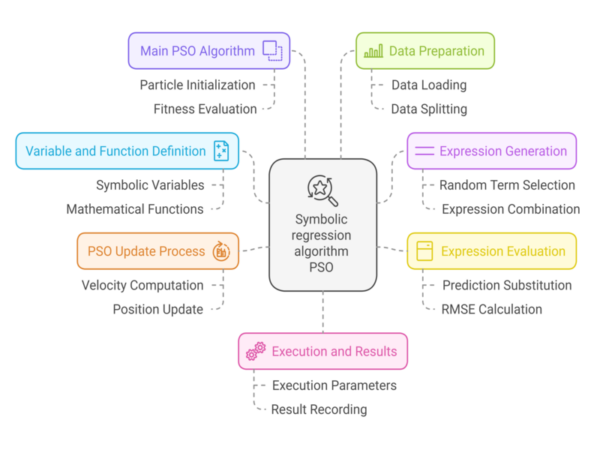
An international research team has developed a novel approach for predicting inverter temperature through symbolic regression based on particle swarm optimization.
A group of scientists from Colombia’s Pontifical Bolivarian University has developed a novel temperature prediction method for PV inverters that utilizes symbolic regression (SR) based on particle swarm optimization (PSO) for prediction.
SR is a machine learning technique that identifies mathematical expressions describing the relationship between input variables and output data; PSO is a bio-inspired optimization algorithm.
“Proper temperature control of a solar inverter is essential to maintaining the efficiency and longevity of these systems. Inaccurate temperature modeling of solar inverters can significantly impact their performance and reliability, affecting these devices’ thermal management and operational efficiency,” the group said.
“Additionally, erroneous temperature predictions can lead to suboptimal thermal management strategies, resulting in energy losses and reduced efficiency of solar inverters.”
The PSO-based SR algorithm starts by defining internal symbolic variables. Random symbolic expressions are created by combining 3–6 terms from the predefined function list, and then the expressions are evaluated using root mean square error (RMSE) between predicted and actual values. Following that, the PSO updates itself based on the personal and global best solution it found. “The algorithm iteratively refines expressions over 25 iterations, balancing exploration and exploitation to minimize RMSE,” the academics added.

Image: Pontifical Bolivarian University, International Journal of Advanced Computer Science and Applications (IJACSA), CC BY 4.0
To train and test the need model, the group created a database from a PV system located on the rooftop of a building in Montería, Colombia. The inverter was housed inside the rooftop structure, and it had a rated power of 36 kW with a power input voltage range of 540-800 VDC. The inverter’s temperature, active power and DC bus voltage were recorded over a year and 70% of those data points were then used to train the novel method, with 30% used to test it. It was compared to a multiple linear regression (MLR) model as well as SR based on genetic algorithms (GA).
The results revealed the SR PSO did best on both the training and testing. In training, it had an RMSE of 3.97 and a mean absolute error (MAE) of 3.36, while the MLR had 4.22 and 3.55 respectively. SR GA scored with a RMSE of 4.59 and an MAE of 3.78. In the testing phase, the SR PSO had an RMSE of 4.12, MLR had 4.52 and SR GA had 4.8. The MAE was 3.31, 3.73, and 3.66, respectively.
“Regarding computing time, the algorithm completed 25 iterations within 0.175 hours per execution. The RMSE reduction reached a value of 3.97, positioning it as a competitive method compared to techniques such as neural networks or traditional multivariate regression for problems with nonlinear relationships,” the group concluded. “The 25-iteration limit in the symbolic regression algorithm based on PSO allows for a brief and controlled execution time (0.175 hours), balancing computational efficiency and precision in searching solutions.”
The novel approach was presented in “Temperature Prediction for Photovoltaic Inverters Using Particle Swarm Optimization-Based Symbolic Regression: A Comparative Study,” published in the International Journal of Advanced Computer Science and Applications (IJACSA). Scientists from Spain’s University of Pamplona and Valencia Polytechnic University, as well as from Mexico’s University of Guadalajara participated in the research work.
This content is protected by copyright and may not be reused. If you want to cooperate with us and would like to reuse some of our content, please contact: editors@pv-magazine.com.
Source link


